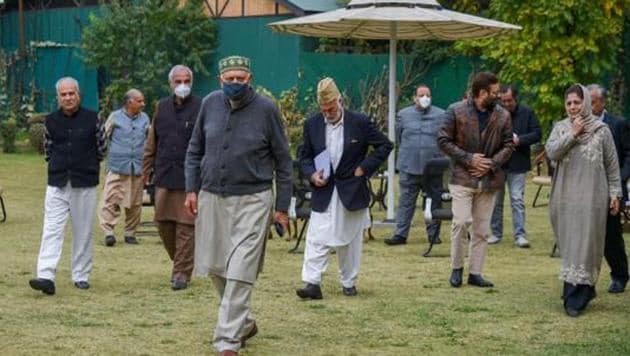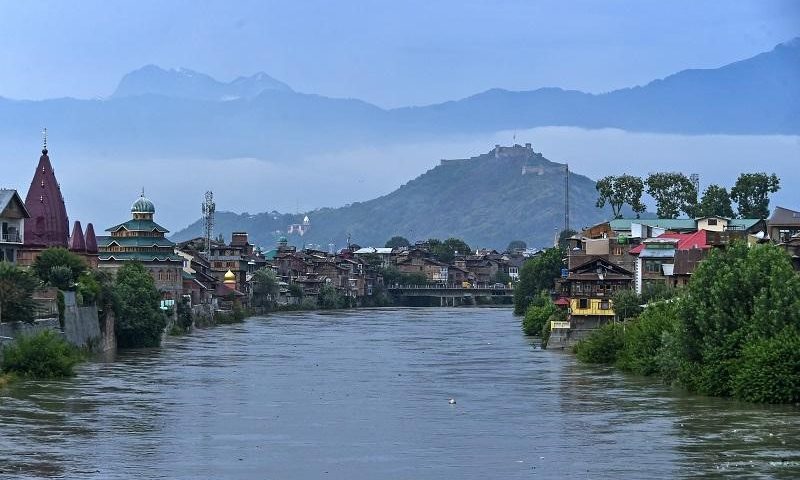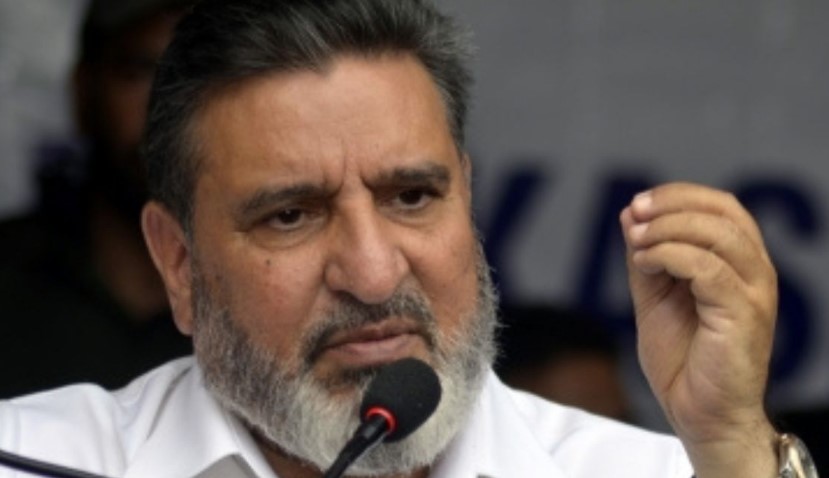Differences emerge among Jammu and Kashmir politicos as Narendra Modi extends olive branch, including necessitating the restoration of Article 370 as a condition for the resumption of any political engagement with the Centre on Kashmir
Differences have erupted among Jammu and Kashmir’s political parties over key issues, including the restoration of Article 370 and the delimitation of Assembly constituencies after the Central Government invited the UT’s politicos for an all-party meeting.
The Peoples Democratic Party (PDP), one of the constituents of People’s Alliance for Gupkar Declaration (PAGD) or Gupkar Alliance, an amalgam of parties formed for restoration of Article 370, has confirmed that it has received an invitation from the Central Government for a meeting with Prime Minister Narendra Modi in New Delhi on 24 June.
This will be the first time that New Delhi would hold direct talks with the leaders of Jammu and Kashmir’s political parties since the abrogation of Article 370 on 5 August 2019.
Article 370 gives special rights to the residents of Jammu and Kashmir over land and jobs while denying the same to non-local residents.
The parties are divided both within as well among themselves on some vital issues, including necessitating the restoration of Article 370 as a condition for the resumption of any political engagement with the Centre on Kashmir.
Kashmir delimitation exercise
National Conference (NC), a member of the Gupkar Alliance, recently said that it was not opposed to the delimitation exercise, which was announced by New Delhi alongside the revocation of Jammu and Kashmir’s special status.
After its provincial committee meeting in Jammu, the NC had said on 8 June that it was “not against the delimitation process in Jammu and Kashmir, but the method adopted, however, is not in tandem with the procedure”.
In 2010, Supreme Court had upheld the decision of the Jammu and Kashmir government to freeze the delimitation of Assembly constituencies till 2026 while rejecting a petition by the Panther Party chief Bhim Singh before the apex court.
The NC has also said that its members lacked any power in shaping the decisions of the Delimitation Commission.
The PDP led by former chief minister Mehbooba Mufti, however, has refused to take part in the delimitation exercise, saying that it was neither represented by any MLA or MP during the Delimitation Commission’s meetings.
The Central Government extended the tenure of the Delimitation Commission by one year in March this year. The Commission seeks to increase the number of Assembly seats in Jammu Kashmir from the existing 83 by creating more constituencies in the Jammu region and ending “regional disparity”. This has been a key demand of political parties based in the Jammu region.
Currently, Kashmir Valley is represented by 46 seats and Jammu by 37 in the Jammu and Kashmir Legislative Assembly.
Is Gupkar Alliance shifting goalposts?
After the abrogation of Article 370, both the NC and PDP have been averse to any engagement with the Central Government.
The PDP had even removed some of its leaders from the party after they met with members of a European Union delegation. The meeting was held in Kashmir after the abrogation of Article 370.
Jammu and Kashmir Apni Party leader, Ghulam Hassan Mir, said that the PAGD leaders have been shifting their “goalposts” on either delimitation or the restoration of Article 370.
He said that they have “always played with the sentiments of the people of Jammu and Kashmir”.
However, National Conference MP Hasnain Masoodi said that the party has not changed its stand on the delimitation exercise.
“We hold the view that the exercise was unconstitutional as a petition against the abrogation of Article 370 was pending before the Supreme Court,” he said.
PDP spokesperson, Suhail Bukhari, said that the party can’t take part in the delimitation exercise as it didn’t have any MLAs or MPs to represent before it.
The Kashmiri Pandit resettlement issue
Earlier in a meeting with the Delimitation Commission, BJP leader Ashwani Chrungoo said that he has sought the reservation of at least five Assembly seats for Sikhs, Kashmiri Pandits, and Hindus settled in Kashmir Valley for several years.
“Reservation is the only way we can end years of discrimination with the Kashmiri Pandits,” he said.
Before joining the BJP, Chrungoo, a Kashmir Pandit leader had been also seeking to carve out areas from the Valley to form a Union Territory and re-settle the migrant Hindus.
The demand for a separate UT for the resettlement of Kashmiri Pandits in the Valley has further revealed differences among the political parties.
“As far as the resettlement of the Kashmiri Pandits in Kashmir as a larger political issue is concerned, BJP is for their resettlement at one place,” Chrungoo said.
Former deputy chief minister and senior BJP leader Kavinder Gupta, however, dismissed the reports of a proposal to “carve-out” another UT out of Kashmir, and further divided Jammu and Kashmir as “rumour-mongering”.
He also said that the BJP was not considering any “proposal” for giving a separate statehood to Jammu, which several parties in the region have been demanding.
Meanwhile, CPM leader, MY Tarigami, who is also the spokesperson of the PAGD, said that his party can’t give up on its stand on the restoration of Article 370.
“We will never budge at any meeting,” he said.
The party has vehemently opposed the division of Jammu and Kashmir and the creation of the two UTs of Jammu Kashmir and Ladakh after revocation of Article 370.
Who are 14 political leaders from JK invited by Centre for talks?
The fourteen leaders who are invited are Dr. Farooq Abdullah, Ghulam Nabi Azad, Omar Abdullah, Mehbooba Mufti, Sajad Gani Lone, Altaf Bukhari, Ravender Raina, G. A. Mir, M. Y. Tarigami, Prof. Bheem Singh, Muzaffer Hussain Beigh, Tara Chand, Nirmal Singh, and Kavinder Gupta.
All the invitees have been asked to carry RTPCR covid report if available, but the condition has not been made mandatory for attending the meeting.





